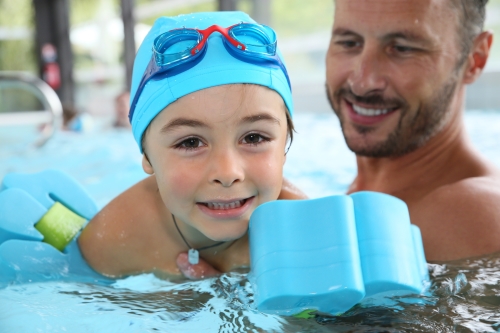For young families, water represents a challenging paradox: It can provide hours of enjoyable, carefree fun, but it can also quickly lead to tragedy. You’re no doubt familiar with the public-service admonition about water and young children: “Children drown without a sound.” In California, drowning is the leading cause of accidental death for children under age 5.
I’m not trying to ruin anyone’s water fun, but whether it’s at the beach, a backyard or community pool, a lake or even a bathtub or toilet, parents with infants, toddlers and children of all ages must remain vigilant when they are near water.
If you have children, chances are you’re well acquainted with, and follow, important water safety tips. As spring approaches and, with it, warmer weather, I wanted to take this opportunity to put them front and center once again. They represent the cumulative advice of the American Red Cross, Safe Kids Worldwide, and other organizations that have your children’s health and safety at heart.
- Never let a young child go near water unattended.
- Make sure young children or inexperienced swimmers wear U.S. Coast Guard-approved life jackets around water, but do not rely on life jackets alone. Keep a close eye on your young children anytime they are around a body of water, even with a lifeguard present.
- Expanding on the point above, never allow your children to use inflatable toys, floating noodles, or “water wings” as safety devices in lieu of a lifejacket. They can suddenly deflate or easily slip out of their hands or arms.
- Small children and houses with pools are a dangerous mix: If your home has a pool, be sure to install barriers around its entire perimeter. The barrier should be at least four feet high and equipped with self-closing gates that open outward and self-latch. Make sure the latch is high enough that it is out of reach of little hands.
- If you have an above-ground pool, keep ladders and other structures that kids could use to enter the pool away when it is not under adult supervision.
- If your children have taken swimming lessons, that’s great. But never use their swimming skills as a substitute for close adult supervision.
- Establish rules around pools and other bodies of water — no running, pushing, diving in shallow water, etc. — and strictly enforce them.
These are just a few of the most important tips for water safety. You can learn more by visiting Safe Kids and the American Red Cross.
Swimming and water play are among the most enjoyable activities families share when the weather turns warm. At Hoag Medical Group, our goal is to keep your family healthy, happy and safe — every day, rain or shine, all year long.



